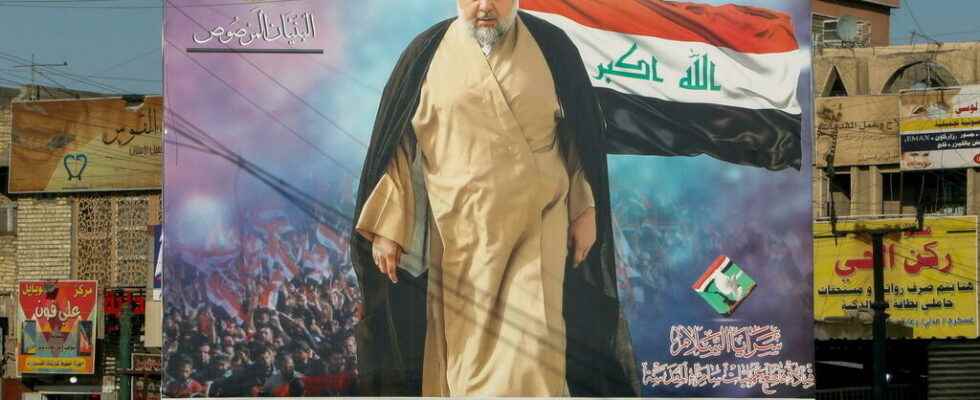Iraq is going through a serious political crisis. Eight months after the legislative elections, the country still has no government. Faced with the political deadlock, the big winner of the election, Moqtada al-Sadr, announced last week the resignation of his 73 deputies in Parliament, claiming to leave the current political process. Can Iraq be governed without this influential Shiite cleric? Meeting with his partisan base.
With our correspondent in Baghdad, Lucile Wassermann
On weekends, during the midday prayer, the streets are crowded in the district of Sadr City, the stronghold of Moqtada al-Sadr. Hundreds of residents cover the hot asphalt with their prayer mats and kneel before the imam. But today, it is the political situation that occupies the minds.
A sadrist in his fifties calls out to his neighbour: ” But no, God willing, there will be no withdrawal of Moqtada al-Sadr! He knows very well what he is doing! He knows when to leave, he will know when to come back! Even within his partisan base, the cleric’s strategy remains muddled, but here everyone supports his decision: Sometimes we don’t understand, we don’t know why he makes these choices, but we find out afterwards, and in general it’s always in our interest! »
► To read also: Iraq: grouped resignation of elected Sadrists, largest bloc in Parliament
Moqtada al-Sadr keeps all his influence, in the street but also in the spheres of power. Despite his decision, Iraq cannot do without him, says Alaa, 34: ” There can’t be a government without the Sadrists, it’s impossible. Even if the other parties form one, it will fall. »
Today all scenarios are possible in Iraq, including the calling of new elections.
► To read also: Resignation of elected Sadrists: “Iraq is in an unprecedented situation”
